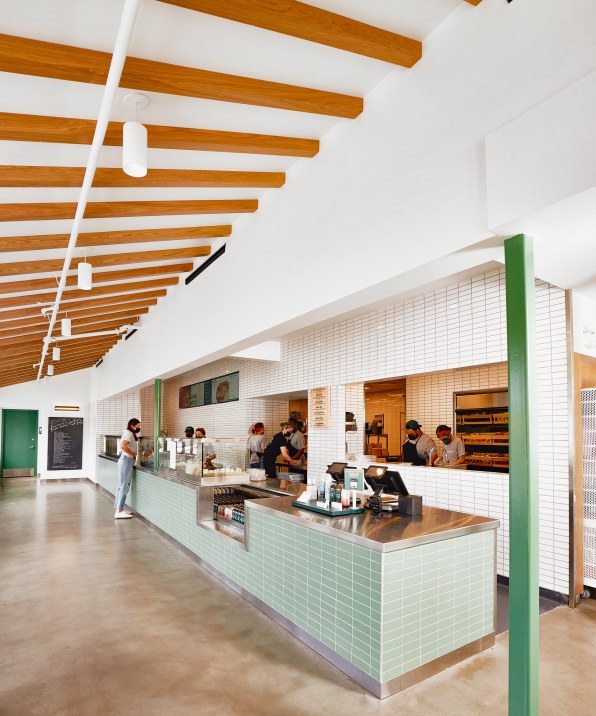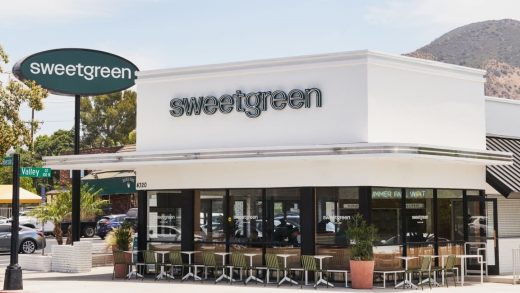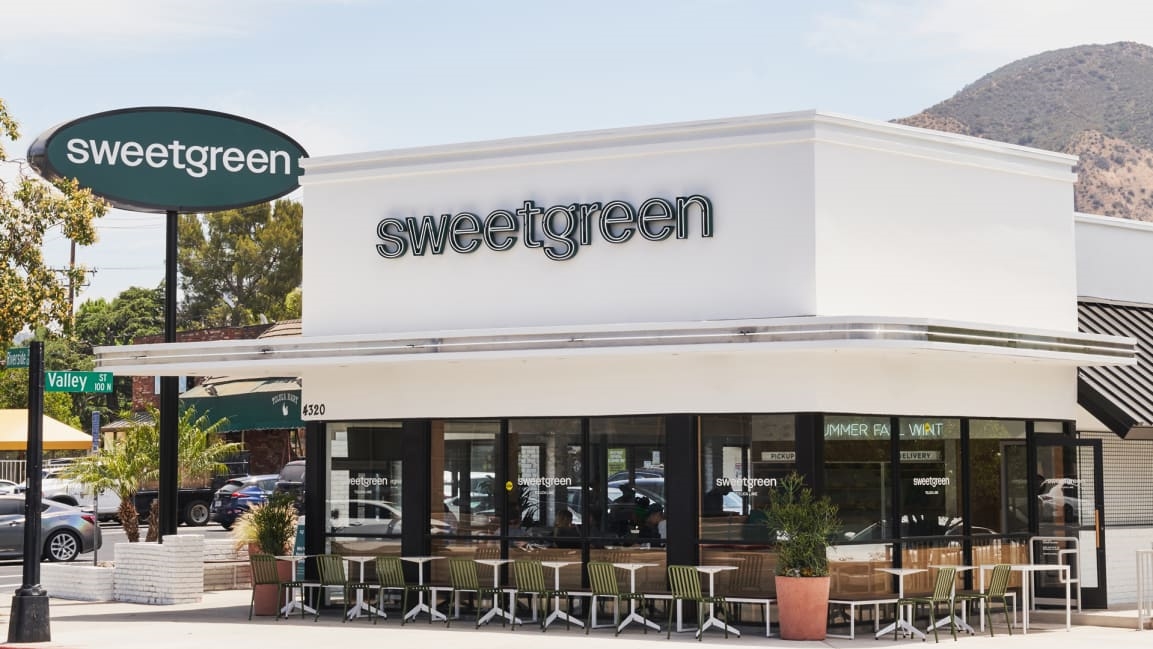Sweetgreen acquires Spyce, a Boston-based robotic kitchen startup
Last October, I wrote about Spyce, the startup behind a pair of Boston-based fast-casual eateries that had recently revamped their technology to almost fully automate the way their kitchens work. The headline: This robotic kitchen startup is coming for Sweetgreen’s lunch.
It turns out, the opposite happened. Sweetgreen announced today that it’s acquiring the three-year-old company. Sweetgreen isn’t disclosing the terms of the deal. Spyce raised $21 million in a series A round in 2018 from the likes of Khosla Ventures, Maveron, and chefs Daniel Boulud and Thomas Keller.
At Spyce’s two Boston locations, fast-casual grain bowls and salads are cooked using on a robotic system. A bowl travels along a conveyor belt as ingredients cooked at different temperatures are dropped in through a series of funnels. Heated steamers cook grains that can be used as a base, while ingredients like proteins are seared on hot plates until they are caramelized and dropped in.
The company also built its own delivery system. It hired a team of drivers to bring food throughout the Boston area on zero-emission electric mopeds in custom-designed carriers with separate compartments to keep ingredients at the right temperatures. The company hires fewer workers in the kitchen due to its automated cooking system. It puts those wages instead toward delivery employees.
Sweetgreen’s acquisition of Spyce comes after the salad chain, which currently has 121 locations throughout U.S., confidentially filed for an IPO in June. Though Sweetgreen had to trim costs and reduce its corporate workforce by 20% last year during the height of the pandemic, its decision to go public signals the company’s confidence that the pandemic’s worst days are over.
Sweetgreen cofounder and CEO Jonathan Neman says that the Spyce is a perfect fit for the salad chain, as both companies have been trying to solve the same problem. “It was clear from the beginning that we had a shared mission of getting healthy food to people quickly, affordably, and consistently. Sweetgreen approached it 10 years earlier and tried to solve it one way. They tried to solve it using technology,” he says.
Sweetgreen now hopes to incorporate some of Spyce’s tech into its own restaurants. “Essentially the idea, is how do you create a better restaurant experience? And re-imagine the fast food experience by leveraging more technology?” Neman says.

The pandemic has accelerated Sweetgreen’s efforts to expand using technology. The company has already been experimenting with new restaurant formats including Outpost, its subscription pick-up spots for businesses, and ghost kitchens. In 2019, Sweetgreen acquired Washington, D.C.-based Galley Foods, a meal delivery service with a central kitchen and a courier network. Sweetgreen also recently recruited Wouleta Ayele as its chief technology officer. Ayele previously served as the senior vice president of Starbucks Technology Services.
The company is still deciding how to incorporate Spyce’s existing Boston locations into the Sweetgreen ecosystem. Spyce CEO Michael Farid says that his 24-person team, including engineers, will remain in Boston and focus on how to build out their existing technology for Sweetgreen. “You look at a lot of the automation world today, and some companies are leasing technology from other companies. That’s one way of doing it. We believe our approach is the right way, so that we can control the quality.” Farid says.
Before the pandemic, many workers were accustomed to braving long lines in order to get their healthy Sweetgreen lunch. By the time they return, Sweetgreen may have those wait times trimmed to a minimum.
Fast Company , Read Full Story
(13)



